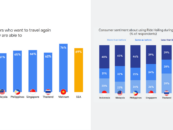
How Governments Around The World Are Supporting SMEs During the COVID-19 Crisis
by Fintech News Singapore March 31, 2020Around the world, countries are ramping up fiscal measures and financial aid programs to respond to the economic impact of the COVID-19 pandemic.
With our colleagues on the ground in Singapore, Malaysia, the Philippines, Hong Kong, Switzerland and the United Arab Emirates (UAE), we look today at the various initiatives and schemes these countries’ respective government have put in place to support local small and medium-sized enterprises (SMEs).
Singapore
Singapore has unveiled several measures to help businesses and SMEs amid the coronavirus outbreak.
These measures include wage subsidies to help businesses keep their workers, deferment in income tax payments for companies and self-employed persons for three months, as well as cash payouts.
Firms will receive wage subsidies of between 25% and 75% for all local workers as part of the Jobs Support Scheme, and eligible self-employed persons (SEPs) will be given three quarterly cash payouts of S$3,000 each in May, July and October 2020, as part of the SEP Income Relief Scheme.
To ease cash flow for businesses, the government also announced the enhancement of the property tax rebate (for qualifying commercial properties), as well as of various existing financing schemes including the Enterprise Financing Scheme’s SME Working Capital Loan, the Loan Insurance Scheme and the Temporary Bridging Loan Programme. The SMEs Go Digital Programme and the Productivity Solutions Grant will also be enhanced.
In the private sector, Hong Leong Finance (HLF), Singapore’s largest finance company, will roll out Covid-19 Loan Relief Schemes to support SMEs and individual customers, and the United Overseas Bank (UOB) is allocating S$3 billion to provide companies financial relief in the forms of unsecured finance, overdraft facilities, and more.
Malaysia
Malaysia announced on March 27 an economic stimulus package worth RM250 billion which comprises microcredit scheme for SMEs, among other initiatives.
Of the total, RM100 billion will be used to support businesses through initiatives including a government guarantee scheme for the corporate sector. In addition, another RM4.5 billion will be prepared by the government and Bank Negara Malaysia (BNM) to support SMEs.
Separately, BNM has issued a directive to all banks to grant an automatic six-month moratorium (deferment) of all loan/financing repayments effective from April 1, to September 30, 2020. During this period, borrowers/customers with loan/financing that meet the conditions do not need to make any repayment, and no late payment charges or penalties will be imposed.
Philippines
In the Philippines, the government has announced a PHP 27.1 billion fiscal package which comprises support to the tourism and agriculture sectors, among other initiatives. Financial assistance will also be provided to affected SMEs and through specialized microfinancing loans and loan restricting.
Separately, the Bangko Sentral ng Pilipinas (BSP), the country’s central bank, has announced a series of regulatory relief measures for the banking sector. These relief measures are intended to encourage banks, in turn, to provide financial relief to their borrowers.
Banks are also expected to suspend all fees and charges imposed on online banking platforms during the period of regulatory relief.
Hong Kong
In Hong Kong, starting April, SMEs will be able to tap into loans of up to HK$2 million that are fully guaranteed by the government, Financial Secretary Paul Chan Mo-po said on March 11, 2020.
The initiative is under the SME Financing Guarantee Scheme (SFGS) of HK$20 billion to ease the operational burden of SMEs, which was unveiled in the 2020-2021 Budget in February 2020.
In the private sector, banks are offering to delay repayments or extend loan tenors, and reduce their fees. Some are also providing unsecured loan products for SMEs and made special arrangements to expedite loan approvals.
Switzerland
In Switzerland, the Federal Council and the country’s banks have launched a special SME loan program for those facing liquidity problems as a result of the coronavirus pandemic.
Affected Swiss SMEs, including sole proprietorships, partnerships and legal entities, can access financial support in the form of bank loans with joint and several guarantees.
Credits of up to CHF 500,000 are fully secured by the Confederation, and will be paid out quickly and with the minimum of bureaucracy. Zero interest will be charged. The program is aimed at companies that had revenues of CHF 5 million or less in 2019, and the application form is available on the website covid19.easygov.swiss and the max. credit allowance will be 10% of the revenue.
UAE
In the UAE, the central bank has launched the Targeted Economic Support Scheme to assist its lenders. The scheme includes an aid package for banks through collateralized, zero-interest loans. Banks will also be allowed to free up capital buffers.
In Dubai, the Dubai Free Zone Council has rolled out an economic incentive package for its free zones. The package includes postponing rent payments for six months and the cancellation of some fines for companies and individuals. The council is also permitting temporary contracts that grant free movement of labor between companies operating in the free zones for the rest of 2020, according to a report by CPI Financial.
In parallel, the DMCC is offering a range of discounts and waivers such as a three-month suspension of rent for Flexi Desk and DMCC Business Centre tenants renewals and monthly instalment with no discount.
In the private sector, the National Bank of Ras Al Khaimah (RAKBANK) said it will be reducing its SME Prime lending rate and offer payment relief to customers availing business loans or asset-backed loans up to a period of 6 months without any additional fees incurred or penalty interest charged.
The bank will also be waiving off local transfer charges conducted via the digital banking app or ATMs and Electronic Deposit Machines (EDMs), in addition to several other discounts for SMEs, startups and entrepreneurs.






